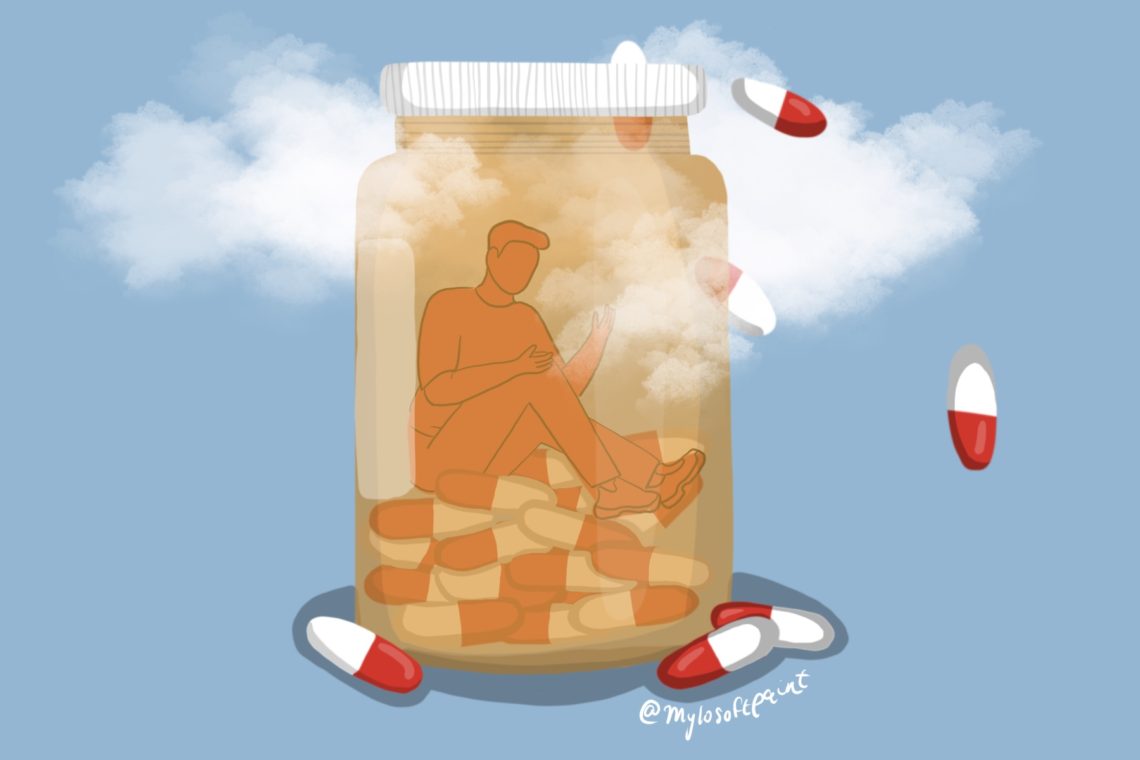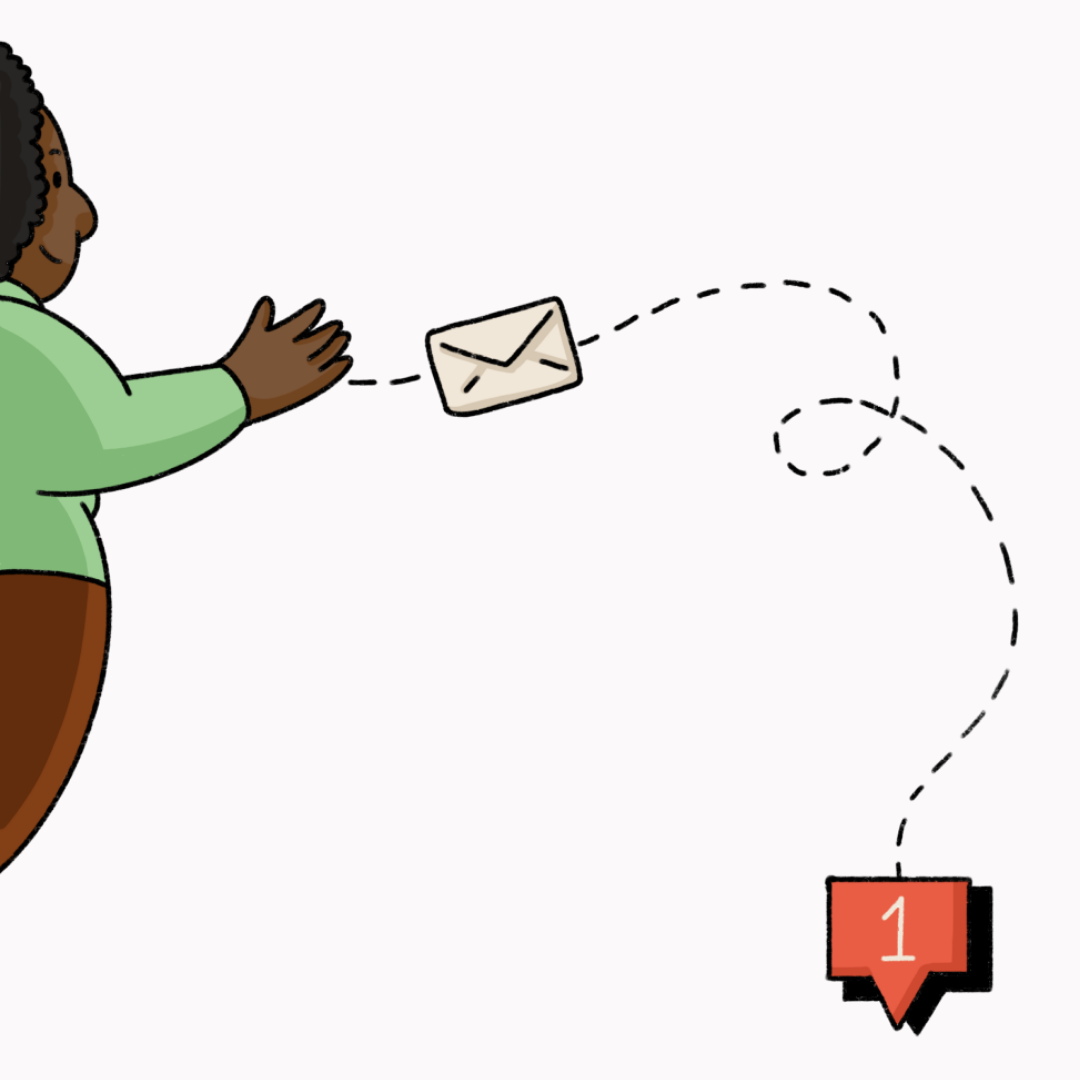Written by: Emily Grey (she/her).
Edited by: Zahra Taboun (she/her).
My name is Emily and I am 24 years old. I was born and raised on Vancouver Island, BC. My story with mental healthcare is uncommon and sharing my experiences with others often makes people uncomfortable. Nevertheless, I feel it is important to frankly share my experiences to improve mental health services for others.
When I was 17 years old, my mother brought me to a psychiatrist to have me evaluated for depression. I had been struggling with low mood, poor self-esteem and a feeling of “brain fog” for around 4 years, which had manifested as an eating disorder for a year when I was 16. I had been to counselling to try to resolve these problems, but had not experienced any significant improvement. After an evaluation, during which I filled out a checklist of common symptoms of depression, the psychiatrist recommended I try the SSRI antidepressant known as Citalopram, also known as Celexa.
After receiving the prescription from my doctor and taking the first few doses, I immediately began to notice improvements in mood and focus. Books were fun and easy to read again, the future looked more promising, everything just seemed brighter. I was so glad I had started Celexa.
Only a few days into taking Celexa, I noticed that my sexual feelings, normally strong, were suddenly diminished.
There was just one downside. At 17 I was in the process of discovering my sexuality and enjoying the process of first sexual experiences, despite my mental health difficulties. Only a few days into taking Celexa, I noticed that my sexual feelings, normally strong, were suddenly diminished. My libido was less and orgasms didn’t feel as good. It was noticeable enough that I quickly made the connection between the antidepressant and the side effect. At my next appointment I asked my psychiatrist about these side effects, and she confirmed that such side-effects were common and would go away when I stopped the antidepressant. I was a little disconcerted that I had not been warned of this at the get-go, but was comforted to hear it would not be permanent and that when I decided to go off Celexa I would be back to normal.
Over the next few years I remained on Celexa at various low to moderate dosages. The side effects still bothered me, but I felt that the benefits of Celexa outweighed them. I was ambitious at school, and they helped me make it through my first couple years of university. Plus I was scared of the vague sense of malaise and worthlessness I remembered from my pre-Celexa days. I didn’t want to go back to that.
Taking my pill in the evenings became normal, as normal as taking a vitamin supplement.
On top of that, online culture fostered an environment of positivity towards psychiatric medication. “If you can’t make your own serotonin, store-bought is fine” said a commonly shared meme. Taking my pill in the evenings became normal, as normal as taking a vitamin supplement. More than half my female friends had been on an antidepressant at one point or another- they weren’t a big deal, right?
Eventually, I began to wake up to the fact that the sexual side-effects of the antidepressant were having a negative impact on my intimate relationships. After a break-up in which my lack of sexual interest played a role, I decided it was time to get off the SSRIs. I had never really planned to stay on them that long anyway–instead, it felt like I forgot who I was without them.
At the advice of a doctor, I tapered off the Celexa. Not that it was much of a taper- from beginning to end, he took me off the Celexa in under a week. Over the next three weeks, I realized nothing seemed to be improving. If anything it felt worse.
I realized nothing seemed to be improving. If anything it felt worse.
Then, I woke up one morning to discover my life had horribly changed. There was a numb, cold sensation in my vulva. All sexual sensation had disappeared from my body. My clitoris was now no more than an inert and sensation-less nub of flesh. I was unable to feel attraction, arousal or orgasm.
Horrified, I immediately made an appointment with my doctor, but he was mystified. Looking into this condition brought me to information about Post SSRI/SNRI Sexual Dysfunction (PSSD), an uncommon but sometimes permanent disorder following antidepressant use. It can set in during or after the use of an antidepressant. The absence of sexual feelings are the most common symptom, but can be accompanied by dulled emotions, genital numbness, poor sleep and cognitive fog. I had absolutely no warning at any point about the possibility of developing PSSD. Neither my doctor nor psychiatrist had warned me – in fact, they had not known about it themselves. It is under-reported, under-researched, and there is nothing doctors can do to treat it.
I often feel pressure to tone down the impact this has had on me due to the stigma against speaking frankly about sexuality and the taboo of criticizing mental health medication in any way. If I discuss this online I am frequently told I am making it up, equated with an anti-vaxxer and told I am ableist or fear mongering. But I must speak the truth of what this has done to me: PSSD has devastated my life.
It has been two years and I have experienced no improvements to this condition.
It has been two full years since this happened to me, and the gut-wrenching grief of having my sexuality taken from me has not diminished in any way. My sexuality was so deeply intertwined with my sense of self, wellbeing and of course relationships. I find it impossible to feel feelings of romantic love which were once so precious to me. I have even had to give up my educational dreams and move back in with my parents because the ongoing emotional trauma means that I need consistent support for my own safety. Unless this has happened to you, you cannot understand the depth of mutilation and violation that is PSSD.
Over the past year I have created an online support group for people suffering from PSSD. We are working together to advocate for awareness and research and offer each other emotional support. We have members from across Canada, and all of us have felt our lives irrevocably damaged by this disorder. Some people see improvement over time, but many do not. Those who do not never stop mourning- five, ten or even twenty years later. I have spoken to a man whose 16-year old grand-daughter died by suicide because an SSRI killed all feeling in her clitoris- just like me. Losing something this fundamental is overwhelming. PSSD breaks people.
We are in an era in which mental illness is being increasingly destigmatized and spoken of more openly. This is a good thing. However, as a culture we are too blasé about antidepressants. They can be life-saving tools for some people with severe depression, but are powerful drugs that come with real risks. We cannot afford to be cowardly when it comes to facing up to those risks.
By not facing the reality that this can happen, we are robbing people of the right to make an informed risk-analysis about their healthcare decisions and keeping doctors and patients alike in the dark.
The Canadian PSSD Society (aka PSSD Canada) advocates for widespread awareness, better warnings at time of prescription and research into causes and potential treatments of PSSD. If you think you may be suffering from this condition, don’t stay silent. You can find community with other sufferers and join our activism efforts. You don’t have to deal with this alone.
To read personal stories and academic sources on PSSD, please visit www.pssdcanada.ca



